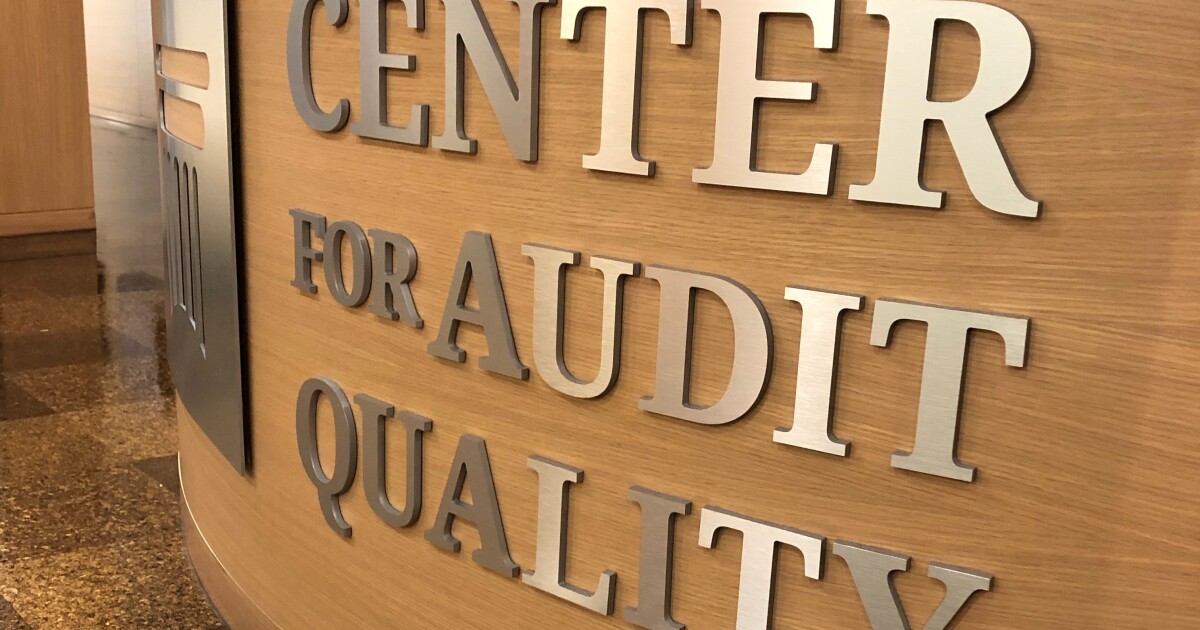The day after; three and out; what a punk; and other highlights of recent tax cases.
Tyler, Texas: Tax preparer Karistha Johnson has been sentenced to two years in prison after pleading guilty to a refund fraud.
Johnson was involved in a multiyear scheme involving the submission of returns containing false and fraudulent statements. She prepared and filed 610 returns from 2017 through 2019 and received $1,244,934 in fraudulent refunds.
Johnson was also ordered to pay that amount in restitution.
Detroit: Business owner Ali Kassem Kain has pleaded guilty to filing a false return and for not paying taxes on cash wages he paid to employees.
Kain owned and operated Specialized Overseas Shipping, which arranged for vehicles to be shipped to West Africa and other destinations for third parties. For tax years 2017 through 2020, he underreported the company’s gross receipts by $6.4 million and did not collect and pay over to the IRS taxes on $249,000 in cash wages.
Sentencing is Aug. 14. Kain faces a maximum of five years in prison for the employment tax offense and up to three years for filing a false return.
Providence, Rhode Island: Mortgage broker Joseph Giuttari, who ran a Ponzi scheme costing investors millions and who fraudulently obtained more than $160,000 in pandemic-related Small Business Administration loans and failed to pay more than $140,000 in federal taxes, has been sentenced to 55 months in prison.
Giuttari, owner and operator of Hybrid Capital Group, The Fens Co. and Realty Funding Advisors, pleaded guilty last year to wire fraud, theft of government property and filing a false return. The day after his guilty plea, he engaged in brokerage activities in violation of his condition of release.
He purported to match borrowers seeking short-term loans with private lenders seeking secured investments in real estate. He directed investors and closing attorneys to send all or a portion of the loan money directly to him through his multiple business entities and business bank accounts. Instead of forwarding these funds to borrowers, he used the money personally or to repay earlier investors.
Giuttari also fraudulently acquired $167,800 in Economic Injury Disaster Loans for Hybrid Capital and Fens, and he lied on his 2019 individual income tax return that his total income was $22,176 when in fact it was at least $541,000; he failed to pay $140,102 due the IRS.
He was also sentenced to three years of supervised release and ordered to pay a fine of $20,000 and pay a total of $4,579,130.95 in restitution to victims of his scheme, to SBA loan programs and to the IRS.
Texarkana, Texas: Three men who all previously pleaded guilty have been sentenced to prison for their roles in a refund scheme.
Imafedia Adevokhai, of Alpharetta, Georgia, was sentenced to 46 months in prison and ordered to pay $90,380.60 in restitution and $3,500 in forfeiture. Michael Martin, of Texarkana, Texas, was sentenced to 18 months in prison and ordered to pay $90,380.60 in restitution and $121,623.41 in forfeiture. Osazuwa Peter Okunoghae, of Houston, was sentenced to 78 months in prison and ordered to pay $451,117.63 in restitution and $451,117.63 in forfeiture.
Adevokhai, Martin, Okunoghae and others were involved in a multiyear stolen identity refund fraud involving the theft of victims’ personal ID information and use of the stolen information to file fraudulent returns. The fraudulent refunds totaled $4,945,886, and the federal government suffered at least a $390,220.40 loss.
Adevokhai was involved in the preparation and filing of many of the fraudulent returns; Okunoghae and Martin helped launder the money. They were connected to dozens of stolen IDs of taxpayers.
St. Louis: Elisa Y. Brown, 60, has pleaded guilty to falsifying 42 federal income tax returns for clients.
She admitted preparing false returns from 2016 to 2020. Brown prepared the returns with commercial tax prep software from her home in exchange for $150 to $250 per return. Brown, who did not have a PTIN and digitally signed each return in the name of the taxpayer, claimed false medical and dental expenses and cash donations as deductibles and included false Schedules C reflecting tens of thousands of dollars of false business expenses.
She admitted filing false tax returns for 11 clients, resulting in a tax loss to the IRS of $171,866. During the same time, she prepared and submitted 560 returns, many of which contained similar false deductible expenses.
Sentencing is July 22. Brown, who pleaded guilty to two counts of assisting in the preparation of a false return, faces up to three years in prison and a $250,000 fine, or both, on each count.
San Diego: Restaurateur Leronce Suel has been sentenced to 42 months in prison for schemes to defraud pandemic relief programs and for filing false returns.
Suel, who owned the local restaurants Rockstar Dough LLC and Chicken Feed LLC, conspired to underreport more than $1.7 million in gross receipts on Rockstar Dough’s 2020 corporate return and pandemic relief applications. Suel’s businesses fraudulently received $1,773,245 in Paycheck Protection Program loans and Restaurant Revitalization Fund grants. He and his co-conspirator misappropriated relief money by making substantial cash withdrawals from their business bank accounts, purchasing a home in Arkansas and keeping more than $2.4 million in cash in Suel’s bedroom.
Suel did not file timely returns for 2018 and 2019. On his 2020 through 2023 returns, he also did not report the income from his businesses, including millions of dollars in cash he withdrew. In 2023, he filed false original and amended returns for multiple years, including personal returns for 2016 and 2017 that included false depreciable assets and business losses.
He was convicted last year of wire fraud, conspiracy to commit wire fraud, tax evasion, conspiracy to defraud the U.S., filing false returns and failing to file returns. He was ordered to pay some $1,773,245 in restitution to the SBA and forfeit $1,466,918.
Dillsburg, Pennsylvania: Waylon Wilcox has pleaded guilty to filing false individual income tax returns.
In April 2022, he filed an individual income tax return for 2021 that underreported his income by $8,511,238 and reduced his tax due by $2,180,452. In October 2023, he filed an individual income tax return for 2022 that underreported his income by $4,599,532 and his tax due by $1,098,623.
Wilcox obtained most of this income after acquiring and selling 97 pieces of digital artwork from the “CryptoPunks” collection. Individual pieces from the collection were referred to as “Punks” and each contained digital proof of ownership. Two Punks from the same blockchain could look identical but were not interchangeable, meaning they were non-fungible; non-fungible tokens can be traded and sold for money or cryptocurrency.
In 2021, Wilcox sold some 62 Punks for about $7.4 million. The next year, he sold some 35 Punks for about $4.9 million. On his 2021 individual income tax return, Wilcox falsely answered “no” to the question concerning virtual currency. On his 2022 return, Wilcox falsely answered “no” to the question regarding receiving or disposing of a digital asset or a financial interest in a digital asset.
He faces up to six years in prison, a term of supervised release and a fine.


 Blog Post1 week ago
Blog Post1 week ago
 Economics1 week ago
Economics1 week ago
 Economics1 week ago
Economics1 week ago
 Economics1 week ago
Economics1 week ago
 Personal Finance7 days ago
Personal Finance7 days ago
 Economics6 days ago
Economics6 days ago
 Economics4 days ago
Economics4 days ago
 Accounting4 days ago
Accounting4 days ago












